Malcolm R. Campbell's Blog, page 232
June 8, 2012
Mystics and Avatars in a Science and Technology World
 I've always liked the title of Jack Kornfield's book about the spiritual path, After the Ecstasy, the Laundry. Whether it's authors attending conferences or spiritual seekers attending retreats and seminars, the high of the lectures, meditations and fellowship often wears off after one gets back home to grocery shopping, laundry and a world that often seems to discount writers' and seekers' insights.
I've always liked the title of Jack Kornfield's book about the spiritual path, After the Ecstasy, the Laundry. Whether it's authors attending conferences or spiritual seekers attending retreats and seminars, the high of the lectures, meditations and fellowship often wears off after one gets back home to grocery shopping, laundry and a world that often seems to discount writers' and seekers' insights.In his introduction, Kornfield writes, "Our realizations and awakenings show us the reality of the world, and they bring transformation, but they pass."
Many years ago, I attended a weekend Silva Method course that taught, among other things, how to meditate and see with your inner eye what your physical eyes cannot see. During and immediately after the course, my friends and I felt a spiritual ecstasy that convinced us we'd been handed the keys to the kingdom. I still use the techniques I learned, but the ecstasy has long since passed.
While many people asked me about the course and were flabbergasted when I could, for example, tell them about people they knew whom I had never met, it was obvious that they also felt I had transformed into a weird, non-normal human being. Even though everyone who took the course could do what I could do, those who didn't take the course saw the knowledge coming from it as parlor tricks, the work of the "devil" or otherwise suspect.
I found it difficult to "stay true" to what I learned when society itself not only discounted it, but viewed the beliefs with contempt. Some of these thoughts were on my mind when I posted What if Harry Potter Bought the House Next Door to You? on my Malcolm's Round Table blog. My feeling was that if Harry moved into the neighborhood and openly practiced magic, he would be persecuted.
The Sun Singer and Sarabande
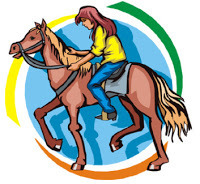 Since my reality is that spiritual seekers are distrusted by everyone but the choir of there own like-minded friends, this is the reality of my contemporary fantasy novels. In The Sun Singer, Robert Adams' avatar grandfather wants to teach him spiritual truths. Robert's parents--who represent society's views--are opposed to this and don't like his hero's journey quest.
Since my reality is that spiritual seekers are distrusted by everyone but the choir of there own like-minded friends, this is the reality of my contemporary fantasy novels. In The Sun Singer, Robert Adams' avatar grandfather wants to teach him spiritual truths. Robert's parents--who represent society's views--are opposed to this and don't like his hero's journey quest.Robert succeeds on his quest and The Sun Singer ends on a hopeful note. However, by the time my title character finds him in Sarabande, not only has the high of his accomplishments worn off, Robert has all but turned his back on the quest because of the way his parents and friends are viewing his transformation.
Likewise, Sarabande ends on a hopeful note after Sarabande goes through hell on her heroine's journey quest to confront her sister. Like Robert's parents, Sarbande's mother tries to discourage her from going on her journey. Fortunately, Robert came through and helped her, and I remain hopeful that the ecstasy of their suffering and transformations never wears off.
Personally, I think that what one gains from meditation and transformation never really passes away even though the initial high of it cannot be maintained or even recaptured. Kornfield's "laundry" is the reality that we face when we come back from the journey. We just need to remember where we went and what we learned while we were there. I hope my readers feel the same way as they read my contemporary fantasies.
Malcolm
Published on June 08, 2012 09:46
June 3, 2012
Run, it's an avalanche of books
 While reading and reviewing Jeffrey T. Babcock's wonderful novel Should I Not Return (based on a controversial mountain climbing tragedy on Mt. McKinley), I kept noticing the waiting stack of books I've also promised to read and review. One of the risks a mountain climber faces is getting caught in an avalanche. I'm starting to think an avalanche of books is a little-known danger for critics and reviewers.
While reading and reviewing Jeffrey T. Babcock's wonderful novel Should I Not Return (based on a controversial mountain climbing tragedy on Mt. McKinley), I kept noticing the waiting stack of books I've also promised to read and review. One of the risks a mountain climber faces is getting caught in an avalanche. I'm starting to think an avalanche of books is a little-known danger for critics and reviewers.Unfortunately, I have to turn down more review requests than I can accept simply because I'm not a fast reader. (I don't understand people who can read an 80,000-word book over the weekend and then write a review of it the following Monday.) So, here in this small den where the bookshelves already cover the walls like thick wallpaper, books are piled on top of anything. Anything (such as one of my cats) could set off a rumbling cascade of books at any moment. Note: my real shelf is larger than the one in the picture.
If you have sent me an ARC, I haven't forgotten you, I promise. I know it sounds lame, but I'm backed up, running behind, and trying to catch up.
You May Also Like:
Briefly Noted: 'The Storyteller's Bracelet' by Smoky Trudeau Zeidel (Malcolm's Round Table)rivers within us I posted this after my wife and I took a float trip while celebrating our 25th wedding anniversary on the Biltmore Estate in Asheville, NC this past week. (Magic Moments)School To Track Students Like Cattle and/or Criminals After reading a news story about a Texas school system that planned to track its students with RFID chips, I couldn't resist writing this satirical news story about it. (Morning Satirical News)
Have a great week and, if you're behind in your reading, please stand clear of any and all bookshelves.
Malcolm
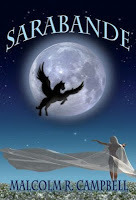 Malcolm R. Campbell is the author of contemporary fantasies, including Sarabande, an adventure novel released by Vanilla Heart Publishing in 2011.
Malcolm R. Campbell is the author of contemporary fantasies, including Sarabande, an adventure novel released by Vanilla Heart Publishing in 2011.The novel is available in trade paperback, on Nook and Kindle, and in multiple other e-book editions on Smashwords.com.
Published on June 03, 2012 07:41
May 26, 2012
The Problem With Doubt
Doubt seems to me to be one of the most crippling states of mind a writer can fall into. By doubt, I mean a feeling that whatever one's doing is either pointless or will otherwise fail.
As writers, we are told early on that in a social networking world, we can't express doubt even if we're feeling it because it looks unprofessional and gives readers a reason to believe that the writer must not be selling any books or has lost his/her touch. So, when we feel doubt, we have to keep it to ourselves.
Doubt seems to lead to more doubt. I don't know if doubting becomes a self-fulfilling prophecy, or whether there's something psychic going on that sends out "weakness vibes" telling things that weren't going wrong to suddenly go wrong. Or, perhaps our view of things changes when we're feeling doubt and things suddenly look worse than they are.
How to Fix It
As a man, I'm expected to ask "how does one fix it?" Frankly, I've been writing long enough to know that "fixing it" isn't a train of thought that leads down the road to non-doubt. In many ways, I think we have to trick doubt or trick ourselves.
While we're doubting, we can "prove" our doubt is rational by listing things that aren't going well: The last book sold poorly, an article or short story has been rejected, publishers won't look at unsolicited manuscripts and neither will agents so why bother, or one just doesn't seem to have the "gift of gab" that draws friends and relationships online or at talks and book signings.
Such lists can be endless. And, truth be told, if we're going to persist in making them, perhaps each item we include should be examined logically. Perhaps the last book didn't sell because we skimped on promotion, put it into the wrong genre, or picked a book cover that didn't work. Maybe our articles are being rejected because we're sending them in blind rather than querying the editor to see what s/he wants. There are legitimate reasons why things don't always work.
Moving On
If we're already doing everything we know to do--and seriously believe we're in the right business--then I think we have to distract ourselves from our doubt long enough to feel like trying again. Sure, there will always be stories about people who self-published their books and sold them out of their cars until some friend of a big New York agent happened to see a copy and sent it to the important people s/he knew and suddenly HarperCollins bought the book for $1,000,000.
Seeing the writing world as hopeless every time we read stories like that certainly creates doubt because the implication is that no matter how hard you work, you won't succeed without some magical event. But, even if that's true (and I don't think so) we write because of some reason--we like asking what if, we like telling stories, we like juggling the stuff of our imagination.
Whatever that reason is, getting back to it is the best way to counteract doubt. Personally, I've tricked myself out of feelings of doubt by distracting myself with a great novel, a compelling movie, or in catching up with the zines and magazines that I've let pile up. Some people are able to get rid of doubt by focusing on physical activity such as washing the car, mowing the yard, or going to a hike.
When the distraction is strong enough, it's almost (for me) a magical moment. It pulls me far enough away from doubt that rather than feeling hopeless, I'm thinking of story ideas again or suddenly coming up with some new posts for my blogs. At some point in the process, doubt vanishes.
What about you? We know that some famous singers get stage fright; that baseball pitchers employ all kinds of rituals to keep from clutching up and worrying about the pitches they're about to throw; that one thing or another thing gets a writer into the groove rather than worrying about where the groove is.
The Mind Killer
In the novel Dune, the Bene Gesserit had a litany against fear: "I must not fear. Fear is the mind-killer. Fear is the little-death that brings total obliteration. I will face my fear. I will permit it to pass over me and through me. And when it has gone past I will turn the inner eye to see its path. Where the fear has gone there will be nothing. Only I will remain."
Perhaps we need no go that far to dispel doubt, though it can be a mind killer for a writer. If logic can't cast it out, than perhaps tricks will work or a stiff drink. I cannot write when I doubt and so I do everything I can to keep from feeling it or to get rid of it when it catches me by surprise.
Malcolm

As writers, we are told early on that in a social networking world, we can't express doubt even if we're feeling it because it looks unprofessional and gives readers a reason to believe that the writer must not be selling any books or has lost his/her touch. So, when we feel doubt, we have to keep it to ourselves.
Doubt seems to lead to more doubt. I don't know if doubting becomes a self-fulfilling prophecy, or whether there's something psychic going on that sends out "weakness vibes" telling things that weren't going wrong to suddenly go wrong. Or, perhaps our view of things changes when we're feeling doubt and things suddenly look worse than they are.
How to Fix It
As a man, I'm expected to ask "how does one fix it?" Frankly, I've been writing long enough to know that "fixing it" isn't a train of thought that leads down the road to non-doubt. In many ways, I think we have to trick doubt or trick ourselves.
While we're doubting, we can "prove" our doubt is rational by listing things that aren't going well: The last book sold poorly, an article or short story has been rejected, publishers won't look at unsolicited manuscripts and neither will agents so why bother, or one just doesn't seem to have the "gift of gab" that draws friends and relationships online or at talks and book signings.
Such lists can be endless. And, truth be told, if we're going to persist in making them, perhaps each item we include should be examined logically. Perhaps the last book didn't sell because we skimped on promotion, put it into the wrong genre, or picked a book cover that didn't work. Maybe our articles are being rejected because we're sending them in blind rather than querying the editor to see what s/he wants. There are legitimate reasons why things don't always work.
Moving On
If we're already doing everything we know to do--and seriously believe we're in the right business--then I think we have to distract ourselves from our doubt long enough to feel like trying again. Sure, there will always be stories about people who self-published their books and sold them out of their cars until some friend of a big New York agent happened to see a copy and sent it to the important people s/he knew and suddenly HarperCollins bought the book for $1,000,000.
Seeing the writing world as hopeless every time we read stories like that certainly creates doubt because the implication is that no matter how hard you work, you won't succeed without some magical event. But, even if that's true (and I don't think so) we write because of some reason--we like asking what if, we like telling stories, we like juggling the stuff of our imagination.
Whatever that reason is, getting back to it is the best way to counteract doubt. Personally, I've tricked myself out of feelings of doubt by distracting myself with a great novel, a compelling movie, or in catching up with the zines and magazines that I've let pile up. Some people are able to get rid of doubt by focusing on physical activity such as washing the car, mowing the yard, or going to a hike.
When the distraction is strong enough, it's almost (for me) a magical moment. It pulls me far enough away from doubt that rather than feeling hopeless, I'm thinking of story ideas again or suddenly coming up with some new posts for my blogs. At some point in the process, doubt vanishes.
What about you? We know that some famous singers get stage fright; that baseball pitchers employ all kinds of rituals to keep from clutching up and worrying about the pitches they're about to throw; that one thing or another thing gets a writer into the groove rather than worrying about where the groove is.
The Mind Killer
In the novel Dune, the Bene Gesserit had a litany against fear: "I must not fear. Fear is the mind-killer. Fear is the little-death that brings total obliteration. I will face my fear. I will permit it to pass over me and through me. And when it has gone past I will turn the inner eye to see its path. Where the fear has gone there will be nothing. Only I will remain."
Perhaps we need no go that far to dispel doubt, though it can be a mind killer for a writer. If logic can't cast it out, than perhaps tricks will work or a stiff drink. I cannot write when I doubt and so I do everything I can to keep from feeling it or to get rid of it when it catches me by surprise.
Malcolm
Published on May 26, 2012 13:48
May 19, 2012
Writing the world into a better place
A writer friend of mind is asking writers in her blog how we use our talents to lift up the world and make it a better and brighter place.
Am I under any obligation to do this? Or, to put it another way, is the ultimate intent of fiction the creation of a bully pulpit from which writers preach, persuade, editorialize and badger readers into changing their minds about one thing or another thing?
Joseph Campbell has said that our true focus as individuals is changing ourselves rather than trying to change the world. One can infer many things from his view, one of them being that as each of us becomes better, the world becomes better.
Blogs and social networking sites give writers and non-writers a chance to speak on behalf of their causes and to comment on the good, the bad and the ugly in the daily news. I'm likely to make positive comments online about advances in literacy, keeping the arts in the schools, saving the environment, etc. I say less about politics because the whole mess has become too polarized for sensible debate,
That said, am I--as a writer--supposed to be any more or any less of an advocate through my work on behalf of my causes and beliefs that those in other professions? Some schools of though say "yes," going so far as to say that fiction is bankrupt if it isn't overtly conveying the belief system of the political party, nation, religion or social/political organization(s) or group(s) to which the author belongs.
Novels, short stories and plays have often made very strong statements on behalf of the hungry, the oppressed, the misunderstood and the forgotten. But must they?
I don't think so.
However, in trying to make myself a better person, I am likely to write about the process. So, my fiction typically portrays individuals who discover ways to triumph over adversity and/or become more at one with themselves and the environment and the other creatures with whom we share the planet. Readers with similar views are likely to like what they see. When I read their work, I feel less alone with my beliefs, so perhaps they feel less alone when they read my books.
Readers who have strongly opposing views will probably continue to believe what they've always believed when they finish reading my books.
Perhaps my work positively influences a few fence sitters from time to time.
My writing has always been very personal. I always write what I care about. So my fiction is an extension of myself, reflecting my successes and my failures. But I try to avoid having overt agendas because I've always thought that people who try to set an example can easily become vain and inauthentic. Sooner or later they will lose themselves in their pretense.
Making the world a better place is rather a tall order for those of us who are still trying to figure out how to do the right thing and avoid doing the wrong thing. We all see each other struggling with becoming the best they can be, and there's a great deal of comfort in knowing others are seekers on the path and that from time to time, we can learn from their bad days and good days.
My fiction is rather like that, I think. Readers see the bad and the good in me and from time to time find notions they can adapt (or avoid adapting) for their own lives.
--Malcolm

Am I under any obligation to do this? Or, to put it another way, is the ultimate intent of fiction the creation of a bully pulpit from which writers preach, persuade, editorialize and badger readers into changing their minds about one thing or another thing?
Joseph Campbell has said that our true focus as individuals is changing ourselves rather than trying to change the world. One can infer many things from his view, one of them being that as each of us becomes better, the world becomes better.
Blogs and social networking sites give writers and non-writers a chance to speak on behalf of their causes and to comment on the good, the bad and the ugly in the daily news. I'm likely to make positive comments online about advances in literacy, keeping the arts in the schools, saving the environment, etc. I say less about politics because the whole mess has become too polarized for sensible debate,
That said, am I--as a writer--supposed to be any more or any less of an advocate through my work on behalf of my causes and beliefs that those in other professions? Some schools of though say "yes," going so far as to say that fiction is bankrupt if it isn't overtly conveying the belief system of the political party, nation, religion or social/political organization(s) or group(s) to which the author belongs.
Novels, short stories and plays have often made very strong statements on behalf of the hungry, the oppressed, the misunderstood and the forgotten. But must they?
I don't think so.
However, in trying to make myself a better person, I am likely to write about the process. So, my fiction typically portrays individuals who discover ways to triumph over adversity and/or become more at one with themselves and the environment and the other creatures with whom we share the planet. Readers with similar views are likely to like what they see. When I read their work, I feel less alone with my beliefs, so perhaps they feel less alone when they read my books.
Readers who have strongly opposing views will probably continue to believe what they've always believed when they finish reading my books.
Perhaps my work positively influences a few fence sitters from time to time.
My writing has always been very personal. I always write what I care about. So my fiction is an extension of myself, reflecting my successes and my failures. But I try to avoid having overt agendas because I've always thought that people who try to set an example can easily become vain and inauthentic. Sooner or later they will lose themselves in their pretense.
Making the world a better place is rather a tall order for those of us who are still trying to figure out how to do the right thing and avoid doing the wrong thing. We all see each other struggling with becoming the best they can be, and there's a great deal of comfort in knowing others are seekers on the path and that from time to time, we can learn from their bad days and good days.
My fiction is rather like that, I think. Readers see the bad and the good in me and from time to time find notions they can adapt (or avoid adapting) for their own lives.
--Malcolm
Published on May 19, 2012 09:45
May 16, 2012
Smoky Zeidel's Inspiration Series
 Author Smoky Trudeau Zeidel ("The Cabin," "On the Choptank Shores") invited writers, artists and musicians to participate in a "what inspires you" series of posts that appear every Wednesday on her blog.
Author Smoky Trudeau Zeidel ("The Cabin," "On the Choptank Shores") invited writers, artists and musicians to participate in a "what inspires you" series of posts that appear every Wednesday on her blog.She kicked off the series on May 3 with Some Thoughts on Inspiration. "I’m often asked what inspires me to write the things I write. On the surface, that’s an easy question to answer. I’m inspired by nature in all its beautiful and not so beautiful forms, and I’m inspired by injustice toward all living beings."
Photographer and poet John Glaze contributed his thoughts on May 9. "Inspiration isn’t something I generally look for, although I have at times, during an extremely dry spell, lain in the dark on my bed and said to the darkness, 'Inspire me.'"
My post The World of Wonder appeared today, May 16. "I’m addicted to wonder: my response to awe-inspiring places that epitomize the grace and grandeur of creation."
In the coming weeks, you'll hear from authors Patricia Damery, Melinda Clayton and Debra Brenegan, followed by musician Scott Zeidel, visual artists Kathi Anderson and Mara Lonner.
I hope you'll stop by and read an essay or two and let us know what inspires your art, writing, cooking, crafts and best afternoons in the park.
--Malcolm
Published on May 16, 2012 06:41
May 11, 2012
The Beginnings of Heroes and Heroines
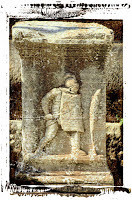 Sometimes heroic decisions are made in a split second. A wife risks her life to run into a burning house to rescue her husband or children. A student risks his life to pull a classmate out of the way of a bus.
Sometimes heroic decisions are made in a split second. A wife risks her life to run into a burning house to rescue her husband or children. A student risks his life to pull a classmate out of the way of a bus.I tend to think such decisions come more out of instinct than logic for the simple reason the circumstances seldom provide the prospective hero with the luxury of contemplating his or her options.
When interviewed by reporters afterwards, people routinely say, "I did what anybody would have done under similar circumstances." They might well be right.
When it comes to long-term decisions such as those symbolized by mythic journeys and lifetime causes and avocations, we usually don't have to decide to act or not act in almost zero time. This is a mixed blessing. Rather than simply acting, we mull over what our intuition is already telling us to do. The prospective consequences cause us a lot of soul searching as well as a lot of pain.
Since we have time to think about the consequences, we know we will judge ourselves--and also be judged by others--if we make a "bad" decision. Obviously, if a person dies while trying to save another, his or her family will live forever with that loss. Yet s/he will usually be given more slack in the decision than, say, an individual who pursues a dangerous cause on the far side of the world and never returns.
 In both cases, the circumstances may be of equal importance. In fiction, as in life, we are expected to restrain our instincts for risky long-term ventures even though we are applauded for acting on impulse when the danger is immediate.
In both cases, the circumstances may be of equal importance. In fiction, as in life, we are expected to restrain our instincts for risky long-term ventures even though we are applauded for acting on impulse when the danger is immediate.As the author of two hero's journey novels and one heroine's journey novel, I often ponder the thought processes that cause a hero or a heroine to act in both immediate and long-term dangerous situations. In fiction, the danger and the negative consequences become part of stories that make people buy exciting books. In life, similar consequences send people to psychologists.
Perhaps we read about heroes and heroines to convince us that we should take the risks and become heroes and heroines in our own lives.
-- Malcolm
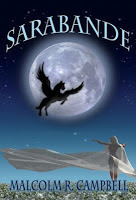 My hero's journey novels are "The Sun Singer" and "Garden of Heaven: an Odyssey." My heroine's journey novel is "Sarabande."
My hero's journey novels are "The Sun Singer" and "Garden of Heaven: an Odyssey." My heroine's journey novel is "Sarabande."You can learn more about them on my website. Stop by an visit!
Published on May 11, 2012 10:04
May 4, 2012
Cool Writing Links for Friday, May 4
This morning's rain isn't helping me wake up and continue my planned work on a short story or on my website. So, with a cup of coffee, I've been reading on line. . .
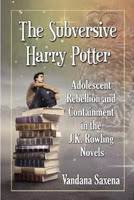
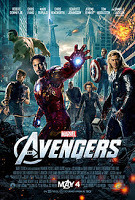 As a contemporary fantasy author, I was happy to get a review copy of Vandana Saxena's The Subversive Harry Potter. Stemming from a doctoral dissertation, the book looks at J. K. Rowling's popular series asking, among other things, whether the formulaic "hero - schoolboy - savior" theme and the huge marketing campaign co-opt the work. I take a brief look at it here.In her blog "The Labyrinth," author Midori Snyder writes about the feelings of mothers whose sons have been sent off to war. The title, "Two Powerful Warriors," comes from the Tolstoy quotation: "The two most powerful warriors are patience and time."The Google book-scan case continues to drag on while those of us who had our work illegally copied continue to sit out here with no resolution to the theft. Bloomberg reports in "Google Argues for Dismissal of Authors’ Book-Scan Lawsuit" that the company is arguing that the Authors Guild can't serve as a representative for the authors involved. Author Smoky Zeidel has begun a series of posts on her "Smoky Talks" blog about the things that inspire writers and authors with "Some Thoughts on Inspiration." I'll be among the authors and artists to contribute a guest post to this series in the upcoming weeks.Over on NPR, David Edelstein takes a look at "The Avengers," calling it a "A Marvel-Ous Whedonesque Ride." Jonathan Gottschall looks at "Why fiction is good for you" in the Boston Globe - "Is fiction good for us? We spend huge chunks of our lives immersed in novels, films, TV shows, and other forms of fiction. Some see this as a positive thing, arguing that made-up stories cultivate our mental and moral development. But others have argued that fiction is mentally and ethically corrosive."Meanwhile, GalleyCat has posted a story with an impossible-to-resist headline: "Self-Published Author Lands Book Deal After 125 Years."Best wishes for a great weekend filled with good reading and great writing.
As a contemporary fantasy author, I was happy to get a review copy of Vandana Saxena's The Subversive Harry Potter. Stemming from a doctoral dissertation, the book looks at J. K. Rowling's popular series asking, among other things, whether the formulaic "hero - schoolboy - savior" theme and the huge marketing campaign co-opt the work. I take a brief look at it here.In her blog "The Labyrinth," author Midori Snyder writes about the feelings of mothers whose sons have been sent off to war. The title, "Two Powerful Warriors," comes from the Tolstoy quotation: "The two most powerful warriors are patience and time."The Google book-scan case continues to drag on while those of us who had our work illegally copied continue to sit out here with no resolution to the theft. Bloomberg reports in "Google Argues for Dismissal of Authors’ Book-Scan Lawsuit" that the company is arguing that the Authors Guild can't serve as a representative for the authors involved. Author Smoky Zeidel has begun a series of posts on her "Smoky Talks" blog about the things that inspire writers and authors with "Some Thoughts on Inspiration." I'll be among the authors and artists to contribute a guest post to this series in the upcoming weeks.Over on NPR, David Edelstein takes a look at "The Avengers," calling it a "A Marvel-Ous Whedonesque Ride." Jonathan Gottschall looks at "Why fiction is good for you" in the Boston Globe - "Is fiction good for us? We spend huge chunks of our lives immersed in novels, films, TV shows, and other forms of fiction. Some see this as a positive thing, arguing that made-up stories cultivate our mental and moral development. But others have argued that fiction is mentally and ethically corrosive."Meanwhile, GalleyCat has posted a story with an impossible-to-resist headline: "Self-Published Author Lands Book Deal After 125 Years."Best wishes for a great weekend filled with good reading and great writing.
Malcolm

 As a contemporary fantasy author, I was happy to get a review copy of Vandana Saxena's The Subversive Harry Potter. Stemming from a doctoral dissertation, the book looks at J. K. Rowling's popular series asking, among other things, whether the formulaic "hero - schoolboy - savior" theme and the huge marketing campaign co-opt the work. I take a brief look at it here.In her blog "The Labyrinth," author Midori Snyder writes about the feelings of mothers whose sons have been sent off to war. The title, "Two Powerful Warriors," comes from the Tolstoy quotation: "The two most powerful warriors are patience and time."The Google book-scan case continues to drag on while those of us who had our work illegally copied continue to sit out here with no resolution to the theft. Bloomberg reports in "Google Argues for Dismissal of Authors’ Book-Scan Lawsuit" that the company is arguing that the Authors Guild can't serve as a representative for the authors involved. Author Smoky Zeidel has begun a series of posts on her "Smoky Talks" blog about the things that inspire writers and authors with "Some Thoughts on Inspiration." I'll be among the authors and artists to contribute a guest post to this series in the upcoming weeks.Over on NPR, David Edelstein takes a look at "The Avengers," calling it a "A Marvel-Ous Whedonesque Ride." Jonathan Gottschall looks at "Why fiction is good for you" in the Boston Globe - "Is fiction good for us? We spend huge chunks of our lives immersed in novels, films, TV shows, and other forms of fiction. Some see this as a positive thing, arguing that made-up stories cultivate our mental and moral development. But others have argued that fiction is mentally and ethically corrosive."Meanwhile, GalleyCat has posted a story with an impossible-to-resist headline: "Self-Published Author Lands Book Deal After 125 Years."Best wishes for a great weekend filled with good reading and great writing.
As a contemporary fantasy author, I was happy to get a review copy of Vandana Saxena's The Subversive Harry Potter. Stemming from a doctoral dissertation, the book looks at J. K. Rowling's popular series asking, among other things, whether the formulaic "hero - schoolboy - savior" theme and the huge marketing campaign co-opt the work. I take a brief look at it here.In her blog "The Labyrinth," author Midori Snyder writes about the feelings of mothers whose sons have been sent off to war. The title, "Two Powerful Warriors," comes from the Tolstoy quotation: "The two most powerful warriors are patience and time."The Google book-scan case continues to drag on while those of us who had our work illegally copied continue to sit out here with no resolution to the theft. Bloomberg reports in "Google Argues for Dismissal of Authors’ Book-Scan Lawsuit" that the company is arguing that the Authors Guild can't serve as a representative for the authors involved. Author Smoky Zeidel has begun a series of posts on her "Smoky Talks" blog about the things that inspire writers and authors with "Some Thoughts on Inspiration." I'll be among the authors and artists to contribute a guest post to this series in the upcoming weeks.Over on NPR, David Edelstein takes a look at "The Avengers," calling it a "A Marvel-Ous Whedonesque Ride." Jonathan Gottschall looks at "Why fiction is good for you" in the Boston Globe - "Is fiction good for us? We spend huge chunks of our lives immersed in novels, films, TV shows, and other forms of fiction. Some see this as a positive thing, arguing that made-up stories cultivate our mental and moral development. But others have argued that fiction is mentally and ethically corrosive."Meanwhile, GalleyCat has posted a story with an impossible-to-resist headline: "Self-Published Author Lands Book Deal After 125 Years."Best wishes for a great weekend filled with good reading and great writing.Malcolm
Published on May 04, 2012 06:25
April 20, 2012
Writing distractions, reasonable and otherwise
As a follow-up to DOJ Antitrust Suit is Discouraging post, I noticed an interesting post on Charlie Stross' blog called What Amazon's ebook strategy means. While I don't like the distractions of publishing uproar, I do view it with some concern as an author.
Likewise, I'm disappointed about the lack of a Pulitzer Prize award for fiction. I've already posted some comments about it on Malcolm's Round Table. Bottom line: the Pulitzer Board should be able to do better than end up with a hung jury, especially after 2011 was viewed by many as a good year for fiction.
I began this blog when the first edition of The Sun Singer was published in 2004. By the time the second edition of the novel came out in 2010, the blog had already become more of a general author's blog than an on-going discussion of the hero's journey. My Sarabande's Journey blog, however, focused entirely on the heroine's journey and other issues in my 2011 contemporary fantasy Sarabande.
On April 4th, I uploaded a final post to Sarabande's Journey. I felt that as an author, it was reasonable to discuss my view of the challenges of a heroine's journey while the book was being written and was first out on the market. But keeping the blog going would have required a lot of extra work because the subject matter is outside my expertise. Needless to say, I am not a mythologist, a Jungian analyst or a specialist in women's studies.
Many years ago, I investigated becoming a Jungian analyst. However, my my graduate work as in journalism rather than psychology, meaning that I would have had a lot of catching up to do in terms of course work. Also, there was the matter of being able to afford it. My long term interest in the subject explains, perhaps, why I like the hero's journey and heroine's journey, alchemical symbolism and other Jungian and mythic subjects. My strengths though are as an author. So, I need to maintain that focus and not get pulled off into the themes of my work.
If I'm not careful, those themes could turn into distractions just as surely as rationalizing a "need" to keep up with the publishing industry.
Malcolm

Likewise, I'm disappointed about the lack of a Pulitzer Prize award for fiction. I've already posted some comments about it on Malcolm's Round Table. Bottom line: the Pulitzer Board should be able to do better than end up with a hung jury, especially after 2011 was viewed by many as a good year for fiction.
I began this blog when the first edition of The Sun Singer was published in 2004. By the time the second edition of the novel came out in 2010, the blog had already become more of a general author's blog than an on-going discussion of the hero's journey. My Sarabande's Journey blog, however, focused entirely on the heroine's journey and other issues in my 2011 contemporary fantasy Sarabande.
On April 4th, I uploaded a final post to Sarabande's Journey. I felt that as an author, it was reasonable to discuss my view of the challenges of a heroine's journey while the book was being written and was first out on the market. But keeping the blog going would have required a lot of extra work because the subject matter is outside my expertise. Needless to say, I am not a mythologist, a Jungian analyst or a specialist in women's studies.
Many years ago, I investigated becoming a Jungian analyst. However, my my graduate work as in journalism rather than psychology, meaning that I would have had a lot of catching up to do in terms of course work. Also, there was the matter of being able to afford it. My long term interest in the subject explains, perhaps, why I like the hero's journey and heroine's journey, alchemical symbolism and other Jungian and mythic subjects. My strengths though are as an author. So, I need to maintain that focus and not get pulled off into the themes of my work.
If I'm not careful, those themes could turn into distractions just as surely as rationalizing a "need" to keep up with the publishing industry.
Malcolm
Published on April 20, 2012 09:25
April 13, 2012
DOJ Antitrust Suit is Discouraging
 Bluntly put, the Department of Justice has (according to some experts) launched an antitrust suit it will probably lose. Nonetheless, several publishers have already settled rather than go through the expense and bad publicity of a protracted legal action.
Bluntly put, the Department of Justice has (according to some experts) launched an antitrust suit it will probably lose. Nonetheless, several publishers have already settled rather than go through the expense and bad publicity of a protracted legal action.The winner is Amazon. They already have a stranglehold on the book industry and it will probably get worse. The public loves the low prices, though, so Amazon looks like the good guy rather than the monopoly Apple suggests it is.
I'm discouraged by the DOJ action because even with moderate success (bullying publishers into settling), they are making it harder for writers, editors and publishers to earn a living. While some writers love Amazon, I do not. Whether they are selling books at a loss, leaning on publishers for better deals, or saying nasty things about bookstores, they are driving down prices based on the mistaken concept that an e-book is "just a file."
Readers, many of whom think they are entitled to free books, like the "just a file" view of a book. What Amazon doesn't tell readers is that the e-book file represents many hours of work by authors, editors and publishers. What's for sale here is not the file but the file's contents.
Most novels sell relatively few copies when compared with the bestsellers. So, when we say a book that took two years of an author's life to write is "just a file," we err when we suggest his/her earnings at 99 cents a copy will make him/her rich. Most authors will be lucky to sell a thousand copies. Suffice it to say, the royalties on 1,000 copies sold at Amazon's monopolistic low prices to not constitute a living wage for an author after a year or two of writing.
Odd, I think, that the Department of Justice under a liberal administration is siding with the Amazon in the room rather than all the authors, publishers and editors who are being harmed by the virtual monopoly that's already in place.
--Malcolm
Published on April 13, 2012 13:39
April 8, 2012
Sunday's this and that
I finished reading (and enjoying) Lynne Sears Williams "The Comrades" and posted a review of it on Malcolm's Round Table this afternoon. Her historical romance is set in 9th century Wales.
Next up will be a modern-day novel set in north Florida, Rhett DeVane's "Cathead Crazy." I grew up in the Florida Panhandle, so--in addition to finding a well-told story in this novel--I'm reading about familar places from Tallahassee to Lake Seminole.
During a visit to my father-in-law's farm earlier this week, I wondered if I was going through Internet withdrawal. That's right, there's no DSL or WiFi there. Was the real world becoming less real than the online world? Perhaps so, as I speculated in The Internet is Drugs. What about you? Can you stay away from e-mail, blogs, online news and Facebook without feeling weirdly out of sync?
My friend Smoky Trudeau Zeidel, hard at work on her third novel, writes about a mid-course correction when a story that doesn't gel forced her to resort to an outline and synopsis for the first time. Since I don't use outlines, I wanted to know what happened in The Evolution of an Author.
This has been a slow and relaxing day, with time to write and post that review of "The Comrades" and work through another draft or two of my short story in progress, the fourth of the year. As for dinner, there's some barbecue to warm up and a few recent TV shows on tape to choose from.
I hope you are enjoying a perfect spring day in your world.
Malcolm

Next up will be a modern-day novel set in north Florida, Rhett DeVane's "Cathead Crazy." I grew up in the Florida Panhandle, so--in addition to finding a well-told story in this novel--I'm reading about familar places from Tallahassee to Lake Seminole.
During a visit to my father-in-law's farm earlier this week, I wondered if I was going through Internet withdrawal. That's right, there's no DSL or WiFi there. Was the real world becoming less real than the online world? Perhaps so, as I speculated in The Internet is Drugs. What about you? Can you stay away from e-mail, blogs, online news and Facebook without feeling weirdly out of sync?
My friend Smoky Trudeau Zeidel, hard at work on her third novel, writes about a mid-course correction when a story that doesn't gel forced her to resort to an outline and synopsis for the first time. Since I don't use outlines, I wanted to know what happened in The Evolution of an Author.
This has been a slow and relaxing day, with time to write and post that review of "The Comrades" and work through another draft or two of my short story in progress, the fourth of the year. As for dinner, there's some barbecue to warm up and a few recent TV shows on tape to choose from.
I hope you are enjoying a perfect spring day in your world.
Malcolm
Published on April 08, 2012 13:21



